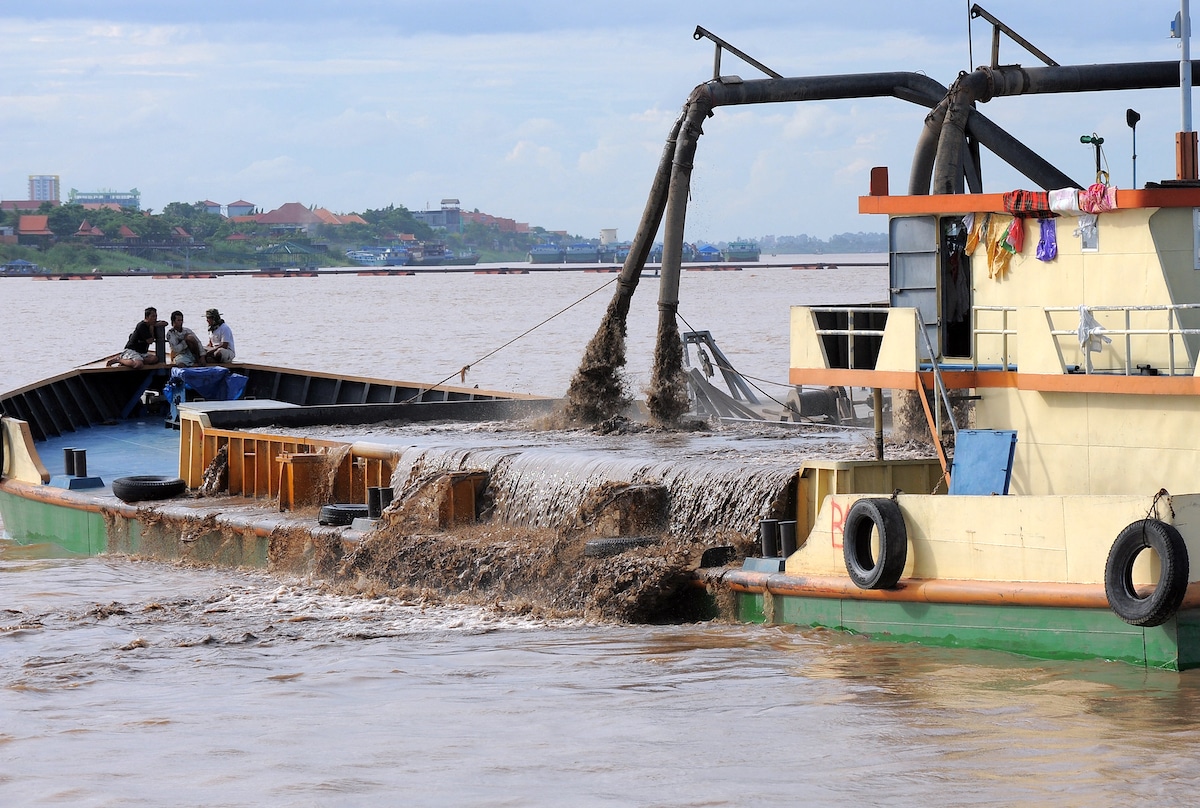Sand Dredging Is Unsustainable and Wiping Out Marine Life, UN Says

 Why you can trust us
Why you can trust us
Founded in 2005 as an Ohio-based environmental newspaper, EcoWatch is a digital platform dedicated to publishing quality, science-based content on environmental issues, causes, and solutions.
Water is the most overused natural resource on Earth, but the second most might surprise you: sand.
Approximately six billion tons of sand is extracted from the planet’s oceans annually, which the United Nations Environment Programme (UNEP) says is unsustainable and poses a serious threat to marine life.
“The amount of sand we are withdrawing from the environment is considerable and has a large impact,” Pascal Peduzzi, GRID-Geneva director at UNEP, said in a press briefing, as Reuters reported.
Despite its importance to industries like metal and chemical production, water production and filtration and construction, the extraction of sand has not historically been strictly controlled. Last year, the UN passed a resolution to encourage more sustainable mining.
“The scale of environmental impacts of shallow sea mining activities and dredging is alarming, including biodiversity, water turbidity, and noise impacts on marine mammals,” Peduzzi said, as reported by The Guardian.
Along with UNEP’s findings comes the launch of Marine Sand Watch, a new platform that uses artificial intelligence and marine tracking to monitor dredging activities, Reuters reported.
Peduzzi said when it is dredging, a ship acts like a “giant vacuum cleaner” and that these boats are essentially “sterilizing the bottom of the sea… and crunching all the microorganisms that are feeding fish.”
Peduzzi added that, in instances where all the sand is removed by companies, “life may never recover” in that location.
UNEP said that the world’s rivers aren’t depositing enough sand each year to replenish what is being extracted.
Dredging hotspots include the North Sea, the South China Sea and the East Coast of the U.S., according to data analytics and sand industry officer Arnaud Vander Velpen of the University of Geneva. Vander Velpen said the U.S., the Netherlands, China and Belgium are some of the countries that dredge the most.
“This data signals the urgent need for better management of marine sand resources and to reduce the impacts of shallow sea mining,” Peduzzi said, as reported by The Guardian. “Unep invites all stakeholders, member states and the dredging sector to consider sand as a strategic material, and to swiftly engage in talks on how to improve dredging standards around the world.”
Some countries have banned the export of marine sand, including Malaysia, Cambodia, Vietnam, Thailand and Indonesia.
Each year, 55 billion tons of sand and gravel are used, and they comprise half of materials mined globally.
“Our entire society is built on sand, the floor of your building is probably concrete, the glass on the windows, the asphalt on roads is made of sand,” Peduzzi said, as The Guardian reported. “We can’t stop doing it because we need lots of concrete for the green transition, for wind turbines and other things.”
Subscribe to get exclusive updates in our daily newsletter!
By signing up, you agree to the Terms of Use and Privacy Policy & to receive electronic communications from EcoWatch Media Group, which may include marketing promotions, advertisements and sponsored content.

 233k
233k  41k
41k  Subscribe
Subscribe 




